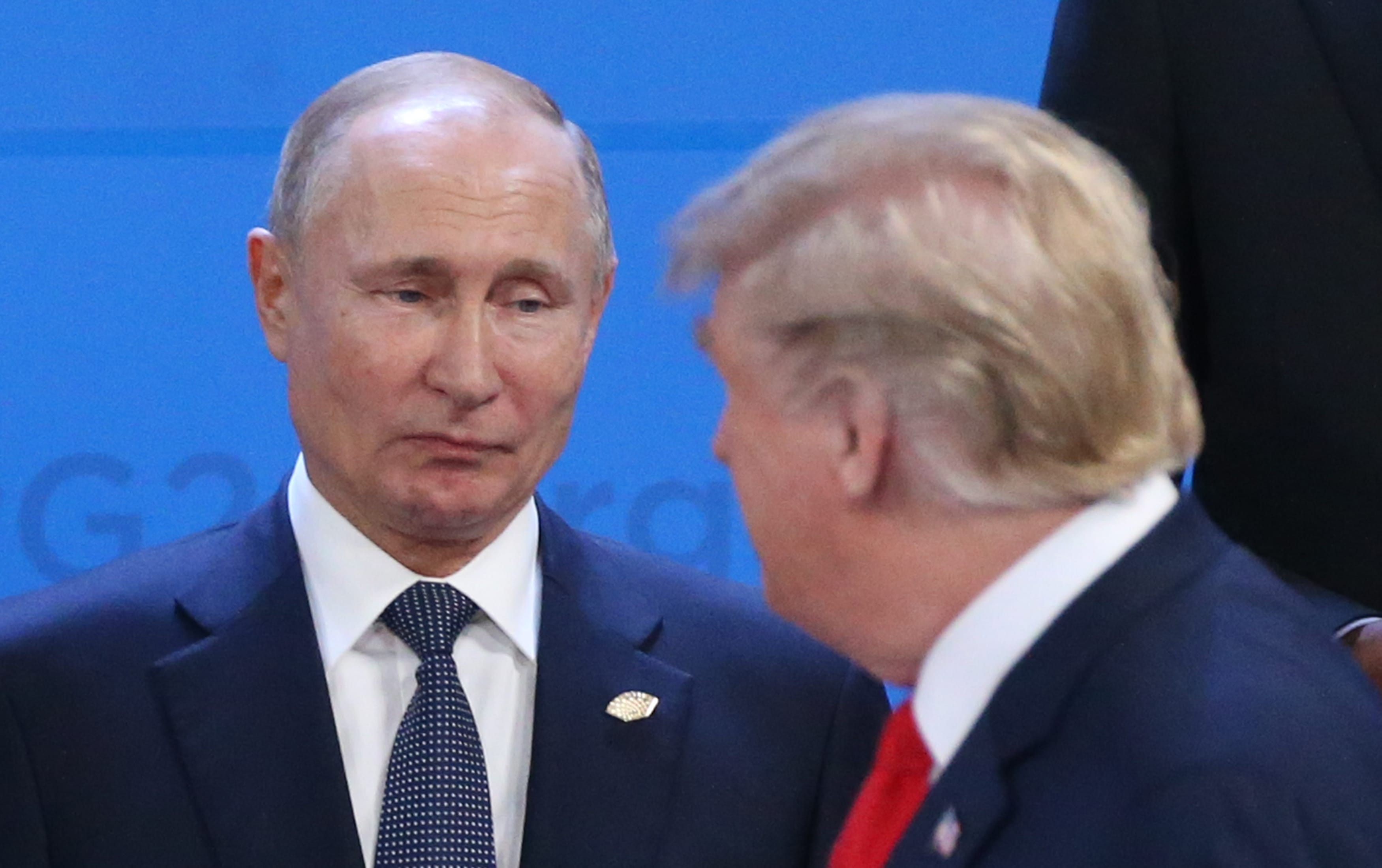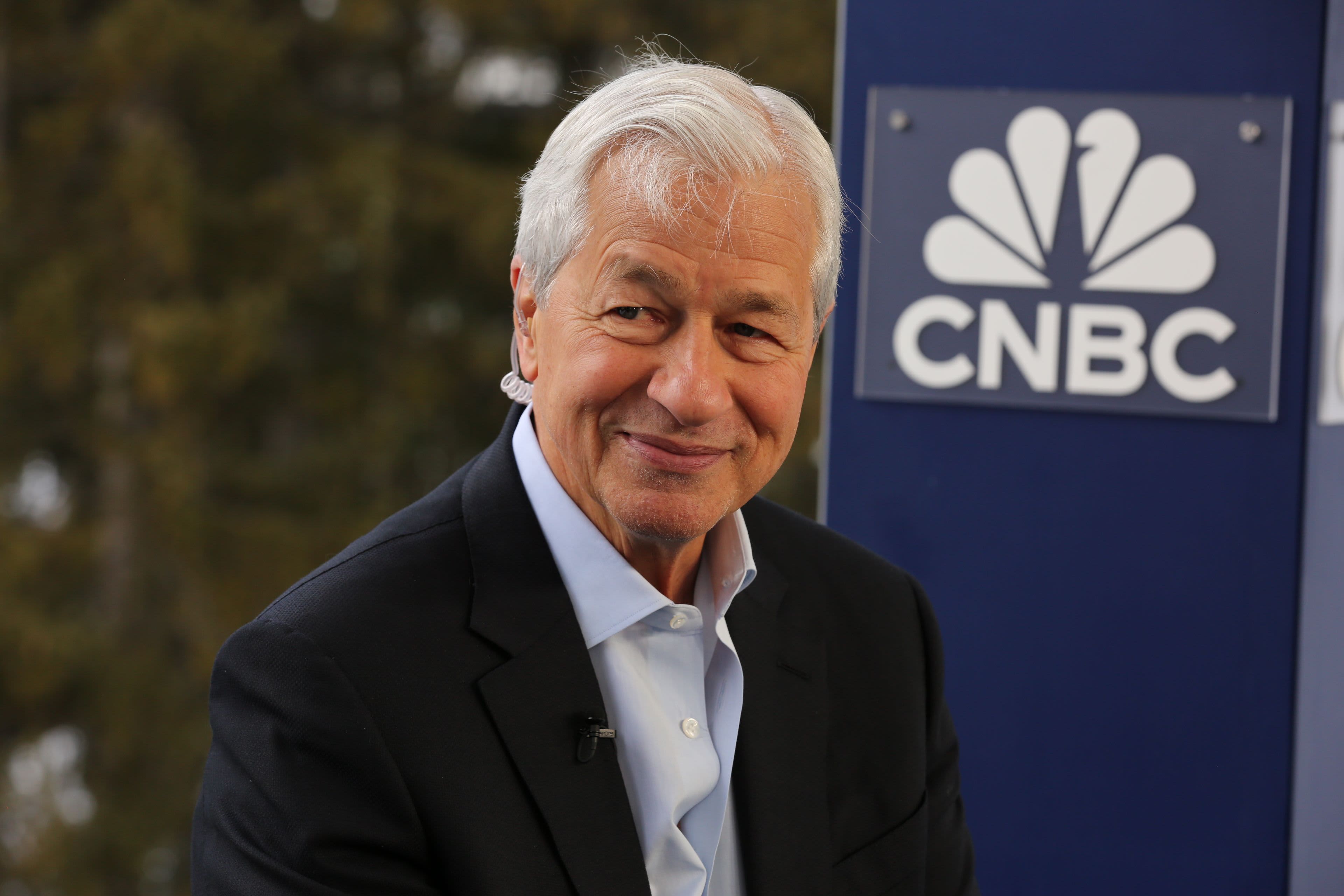If a video game designed to predict the presidential election is correct, then Donald Trump will take the White House.
I played Stardock's 'The Political Machine,' which forecasted Trump's shock win in 2016, to see what America could expect once the polls close Tuesday night.
The simulation is a turn-based, map-trotting game — not unlike 'Risk' or any other tabletop game of political strategy — except the board itself reacts to you and your opponent's moves based on historic turnout data, debate focus groups and more.
The game's makers claim it 'relies heavily on demographic issue patterns' like job, race, sex and income level to determine 'what issues [voters] care about,' data the team has updated regularly ever since they created the first edition back in 2004.
Initially, I found the game confusing, complicated and frankly dorky, but in time I was enthusiastically buying up local ads, setting up campaign offices and hiring 'smear merchants' to spread devious rumors about my opponent: Donald J. Trump.
The length of each turn was defined by my candidate's stamina bar. Joe Biden's shorter turns, for example, were set by what the game calls his 'sleepy' stamina.
Each campaign you play can run from the primaries to Election Day, with factors like stamina, political points, and fundraising ability affecting gameplay.
Since I had limited time, I jumped straight into the general election season as Harris, skipping the primary, not unlike Harris herself.

But even with Harris's added 'oomf,' I found my efforts in key swing states like Pennsylvania stalling — and yet I outperformed my own expectations for Harris in states where I had not deployed much staff, nor much of my campaign war chest.
True to my own experience, Stardock's CEO says that the game now leans slightly toward Trump eking out an electoral college win, but losing the popular vote.
When run on autopilot, with only AI 'non-playable characters' (NPCs) duking it out amongst themselves, the game has accurately predicted outcomes in past elections, even uncovering surprise swing states in 2004 and 2008.
Stardock's founder and CEO Brad Wardell attributes The Political Machine's surprising predictive success to the demographic and 'voter enthusiasm' data that his team feeds into the game.
And Stardock's coders regularly run simulations after inputting the latest data into their updates, improving both gameplay and the accuracy of its predictions.
'The sim thinks North Carolina is going to be really important,' Wardell told Michigan News Network, 'and ironically, for the first time, Michigan's going to be a big deal.'
'So, if there's going to be any fireworks on election night it may come down to Michigan and North Carolina and not for example Pennsylvania,' he said.


During my miniature virtual Harris campaigns, I also traveled to California and New York to fundraise, visited Rust Belt states for rallies, and targeted states like Georgia, Nevada, and Pennsylvania with ads.
The true fun of the 2024 edition, however, comes from each player's strategic use of 'Political Action Cards,' offering a variety partisan skullduggery to gain and edge.
You can employ 'spin doctors,' 'intimidators,' 'fixers,' and even local 'activist judges' to undermine your rivals' activities in each state.
'The candidates do a lot more stuff now than they used to,' Wardell noted.
'It's not just, "Here's our one message that we pound on." There are lots of things they have to do all the time,' he explained.
'We have a political action card in the game that says, "Target opponent is considered weird." You play that on them.'
'For a period of time it lowers enthusiasm for them, or lowers their ability to generate enthusiasm,' as he described its effects to VentureBeat.
But these 'wild cards' of dirty tricks cut both ways.
While the AI-controlled Trump campaigned aggressively across states with anti-immigration rhetoric — some uncredited AI 'Roger Stone' often managed to drain my campaign coffers and lower my support with bizarre strokes of luck from the cards.
But the political machine has a wide variety of gameplay options for those looking to truly experiment in hypotheticals.
Players can compete against AI or other players, using real or custom candidates.

Wardell described their focus on 'voter enthusiasm' as The Political Machine's 'secret ingredient' and something pollsters tend to ignore.
'We use enthusiasm as the metric for determining whether those people will actually come out and vote,' Wardell told Fast Company.
The video game CEO noted that, even before Hurricane Helene ravaged North Carolina communities, the state was being 'weird this time' in reaction to 'anomalous data' beginning around mid-September.
That proved true in my own experience with the game: Despite 'The Tar Heel State' rarely registering as a battleground among political pundits, my cartoony Kamala simulation repeatedly came closer in the southern state than I expected.
According to Wardell, Harris's belated entry into the field threw the underling models and game metrics for The Political Machine into chaos — although Stardock did manage to get a new game patch out within a week of Harris's nomination.
'It's interesting,' Wardell told reporters, 'the issues that do start to pop up that changed with voting patterns once we started running' Harris simulations.'
'Because the simulation is kind of complicated,' the CEO said, 'we don't always know why a particular issue ends up bubbling up.'
One thing that's for certain, as Wardell told Axios, is that Biden made the correct decision for his party in stepping down ahead of the Democratic convention.
'The model was coalescing that Trump was going to win, and then when they got (Harris) as the candidate, that changed everything,' as Wardell explained it.
'The enthusiasm level is way higher now (than with Biden),' he said.



In the game's earliest success, it predicted that Ohio would be crucial in the bout between Kerry and Bush, not Florida which had been the key swing state in 2000.
Players were much more likely to log-in to simulate their ideological opponents in those days, Wardell said.
But since 2016, in a sign of our increasingly polarized landscape, most players have chosen to play as candidates from their own political party.
To make multiplayer more engaging, the 2024 edition now includes primaries, allowing up to four players to compete before the main election.
But, just like in real life, the game's data can change rapidly due to major events or surprises, unexpected events which can 'energize' voters.
As of the game's last update just ahead of Halloween, Wardell says that voter enthusiasm is surging.
'We are seeing a lot of movement on voter enthusiasm,' the CEO noted. 'The election is solidifying around a handful of key issues such as inflation, abortion and the border.'
'The model continues to call out North Carolina as a state we should be keeping an eye on,' Wardell added, a result that continues to baffle his team.
'We are still investigating why it thinks North Carolina and not Pennsylvania is the linchpin state,' he said.
Even after this last update, the game's AI-only 'deep-election simulation' shows a race that, while too close to call, betrays a slight edge for Trump.
But one novel snag that has been a challenge for the makers of The Political Machine this cycle, he noted, was attempting to simulate the effect that early voting is having on turn-out and how it might affect the outcome.
'It's been challenging to have the game's underlying model factor in voting that occurs over multiple days,' Wardell admitted.
'But I think we are getting there. We will see how close we are soon enough.'












